Jacqui Lambie says 70,000 ADF personnel should be put to ‘goddamn use’ amid Covid-19 surge
Jacqui Lambie has issued a desperate plea for troops to fill gaps in Australia’s health system as it crumbles under the pessure of Omicron.
Coronavirus
Don't miss out on the headlines from Coronavirus. Followed categories will be added to My News.
Jacqui Lambie has issued a plea to the federal government to use the country’s 70,000 defence force personnel to plug critical holes in the nation’s healthcare system.
A surge in hospitalisations from Omicron’s rapid spread has put hospitals under immense strain in multiple states.
Twenty Australian Defence Force personnel will be deployed to Victoria from Thursday to assist with driving ambulances to free up paramedics as the healthcare system struggles to cope.
A further six defence members will be used in a planning team to support Victorian authorities.
Personnel will also assist Victorian authorities by taking 000 calls.
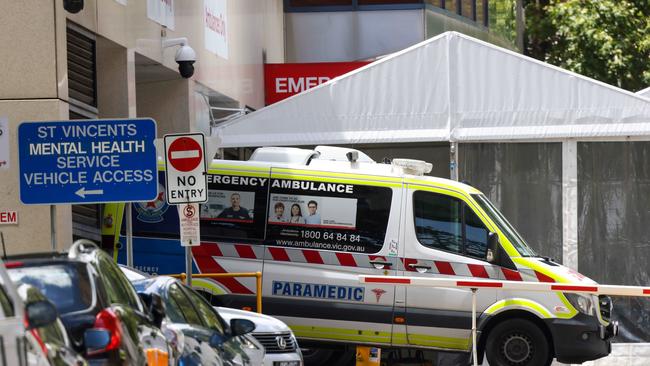
Senator Lambie said governments should use the ADF as much as possible.
“Whether it is in a war – conventional or against Omicron or anything else – I don’t understand why you have a defence force sitting there while you aren’t doing what you need to do, and get them on the ground right now,” she told Today.
Senator Lambie, who is a former soldier, said she couldn’t understand why the defence force wasn’t being used more.
Victoria declared a code brown for Melbourne’s metropolitan hospitals and some regional facilities.
That means some staff will have annual leave cancelled and elective surgeries are being postponed to free up workforce for an anticipated Covid-19 surge.
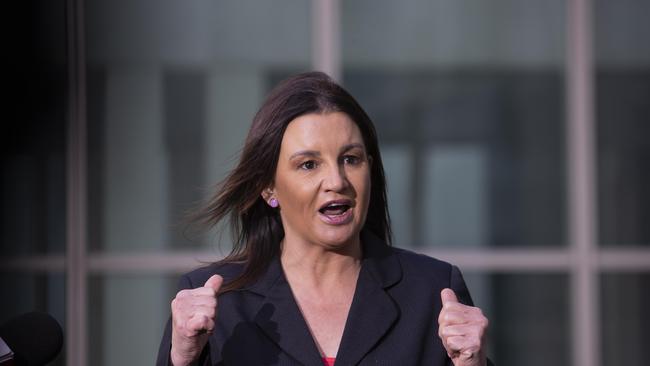
Other states are expected to follow Victoria.
Senator Lambie said ADF members would follow any instructions to help in the crisis.
“Somebody needs to get in and help the first responders out – two years in they are absolutely on their last legs,” she said.
“I get really angry for someone that is former military, that we are trained to do anything you want. If you want us in those goddamn hospitals, get us in those goddamn hospitals.
“This is what we love. Anything that we can do for Australians, whether it is on home soil or overseas soil. Bring us in mate, bring us in.”
Health Minister Greg Hunt has announced private health workers will be used in the public system.
“The private hospitals agreement will see up to 57,000 nurses and over 100,000 staff made available to Omicron affected areas around the country,” Mr Hunt said earlier this week.
“That will mean there will be assistance available where necessary.”
AGED CARE DEFENCE CALL
Aged care providers say the defence force needs to be called in to help tackle staff shortages in nursing homes across the country.
In a joint statement, the Australian Aged Care Collaboration (AACC), a group of six aged care peak bodies, and unions including the Australian Council of Trades Unions (ACTU) urged the Prime Minister to deploy the ADF “to provide emergency support and assistance to overwhelmed aged care workers at nursing homes across the country.”
They also want the federal government to fund additional direct payments for staff to secure the workforce.
“The escalating crisis in aged care has left services around the country reeling, putting care for older Australians at risk due to chronic staffing shortages. Older people are at risk of missing out on essential care because of this. Lockdowns are restricting many residents to their rooms as services work to keep them safe,” the coalition said.
Health Minister Greg Hunt on Tuesday announced that private hospital staff may be able to assist aged care. “We await more details about how this will operate,” the group said.
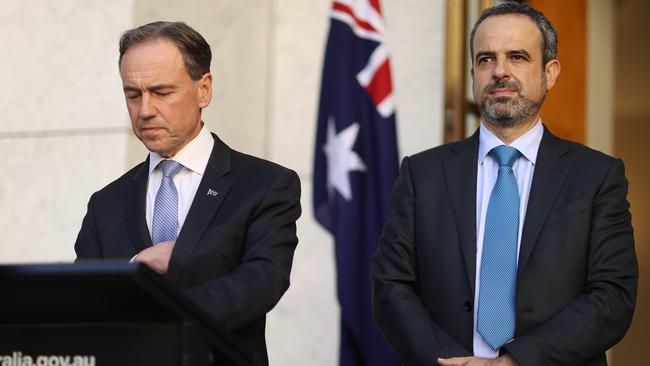
More than a thousand aged care services around Australia are already dealing with an Omicron outbreak, the group said, warning “we expect many, many more to be affected over the coming days.”
“Aged care staff are exhausted and burnt out, with many working for days around the clock. Resignations due to fatigue and feeling undervalued have begun. This is just the beginning. There is no adequate staffing safety net,” they said.
MORRISON REFUSES ADF REQUESTS
Prime Minister Scott Morrison refused requests for ADF personnel to step in to help out in aged care during the Covid crisis.
“There is not some shadow workforce that sits in the Defence Forces or somewhere else that can automatically just replace furloughed staff because they have COVID,” he said at a press conference on Wednesday.
“You need to have people who are trained, and that is true also in aged care,” he said.
Opposition health spokesman Mark Butler said the government should consider using the ADF to help in aged care, hospitals and ambulances.
“Our hospitals, our ambulances, our aged care facilities are under extreme stress, they are at breaking point. And those requests are something I think should be considered. Our ADF has a wonderful tradition of supporting our community through natio emergencies, and we are in the middle of a national emergency,” he said.
Meanwhile, the Health Services Union is calling on the Prime Minister to fund a ‘home guard’ style system so everyday Australians can step in to provide support to the overwhelmed aged care sector.
Similar to the Volunteer Defence Corps deployed during World War II, the aged care “home guard” would help alleviate pressure on exhausted staff and provide a way for Australians who can and want to help to do so.
HSU National President Gerard Hayes said the sector is in the middle of an unprecedented crisis and requires immediate assistance.
“We are hearing horrific reports from our members. Some facilities are so short staffed residents aren’t being showered for days. Others are experiencing food supply issues.
“The majority of staff are exhausted and many are quitting. It is an unmitigated catastrophe,” he said.
“The Prime Minister could help fix this crisis now by paying everyday Australians to provide support to aged care facilities in roles which don’t require training such as food delivery.
“Australians could become ‘community angels’, helping facilities in dire need of assistance, particularly in regional and remote areas,” he said.
HEALTH SYSTEM UNDER HUGE PRESSURE
It comes as Australia’s health system is “on its knees”, with some GP practices overwhelmed by up to 1000 Covid-related phone calls an hour and rapid antigen tests and vaccines unavailable.
Chemists are receiving up to 100 calls an hour as people desperately search for Covid tests the pharmacies simply don’t have.
Nine in 10 pharmacists surveyed by Professional Pharmacists Australia said they could not source rapid antigen tests (RATs) and one third could not even get enough vaccines to deliver booster doses.
Amid the crippling pressure on the system, Australia experienced its most deadly day of the pandemic on Monday, with 77 deaths and more than 712,000 recorded active cases (many more people can’t get tested and are not counted in this statistic).
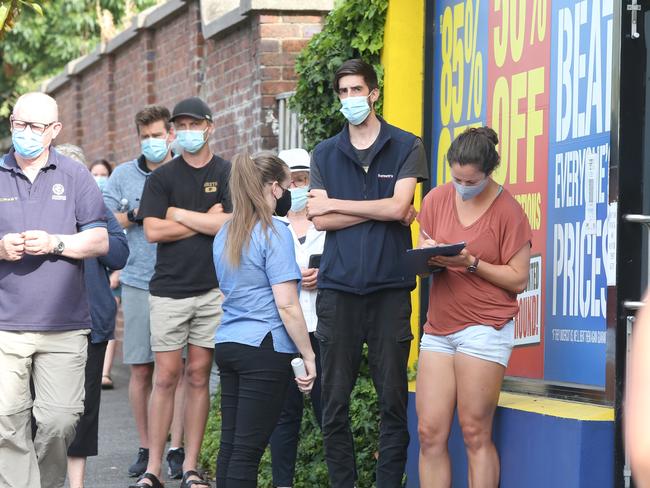
GP practices are cancelling appointments for booster vaccines because their supply has not arrived or employees are off sick and they can’t staff their vaccine clinics.
Royal Australian College of General Practitioners president Dr Karen Price said GP practices had been deluged after the Prime Minister made the surprise announcement that all Covid-positive people should call their GP.
“There was one practice manager last week whose practice received 1000 calls in one hour after the PM made the surprise announcement that all Covid-positive people should call their GP,” she said.
Many are still receiving more than 400 calls a day, making it impossible for people to get through or get an appointment with a doctor, Dr Price said.
Unable to access Covid tests, desperate infected people are turning up at GP clinics, putting other patients and doctors at risk, she said.
Doctors are speaking out, contradicting state and federal leaders who claim the health system is coping with the Omicron outbreak.
“The whole health system is on its knees,” Australian Medical Association chief Dr Omar Khorshid said.
He said the fact that in NSW alone there were 6000 healthcare workers off work, either due to Covid or due to being a close contact, “just takes things into the unsustainable territory”.
In Victoria 4067 public healthcare workers were unable to work because they had been exposed to, or infected with, Covid-19.
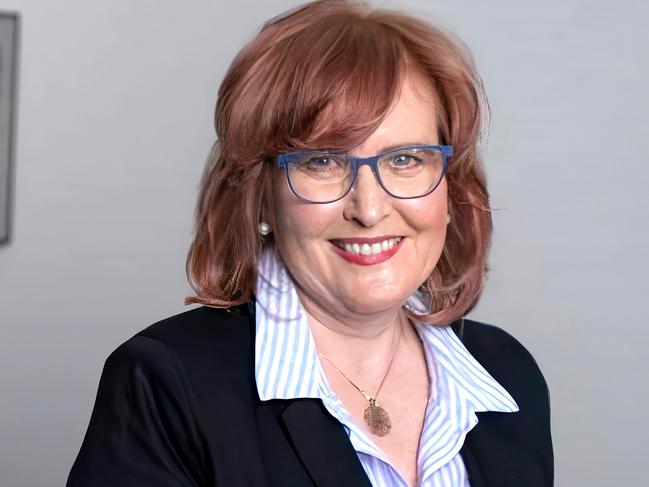
Victoria declared a code brown emergency on Monday, allowing hospitals to call their workers back from leave to deal with massive staff shortages.
“You hear stories of nurses returning working double shifts, patient ratios not being safe anymore and that means healthcare will be lower quality, mean more mistakes, more errors, more drug errors,” Dr Khorshid said.
The cognitive load and the mental and physical exhaustion of GPs was a real problem.
“GPs are still sticking up for their communities, which is amazing, and that’s wonderful, but there is a very critical issue of exhaustion,” Dr Price said.
Many healthcare workers, including young doctors in training, were quitting the profession because of the strain, Dr Price said.
Meanwhile, Chemist Warehouse chief Mario Tascone has told News Corp it takes 3-4 weeks after ordering RATs for them to arrive in chemist shops.
His company received a shipment of 200,000 tests on the weekend but he said they were gone within the first five minutes of shops opening on Monday.
Professionals Australia CEO Jill McCabe described the situation as “beyond dire”.
“Pharmacists are telling us they are extremely overworked and under significant pressure and that they do not have the supplies and equipment they need to do their jobs properly,” she said.
“One pharmacist said they were only able to access 100 doses of the children’s vaccine every fortnight, despite being the only pharmacy in a district servicing several schools.
“Others spoke of the mounting pressure they were under, including one pharmacist who said there were not enough staff to handle ‘100 phone calls an hour asking for RATs whilst doing 80 vaccinations a day on top of the regular workload of a 400+/day script pharmacy’.”




